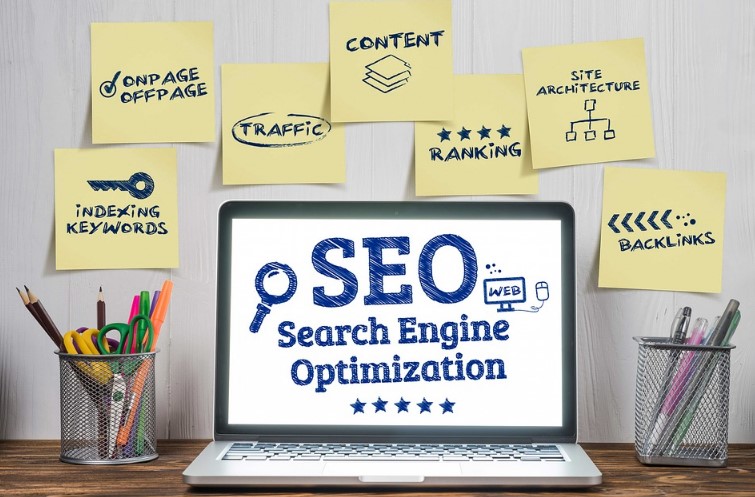In a nutshell, search engines determine the best websites to show on SERP based on several factors, including research on the search terms and keywords searched, the websites’ content, the users’ demographics and behavior on the site, and the search engine’s algorithms. Search engines measure the number of times a keywords appears on a site relative to the rest of all of the sites on SERP.
Think of search engine results page (SERP) as a library with hundreds of books available for a user to peruse. Search engines look at each book by how frequently it’s shown on a SERP and determines whether the book is relevant to that user or not. As search engines assess candidates for inclusion on their SERPs and determine whether the site is a good candidate for inclusion, website owners optimize their web pages to be shown on those SERPs. Basically, optimizing your website to rank on the SERP is like having a successful book series on Amazon. Each new book a user finds is a potential lead for their project, and when users find your book, they are more likely to convert into customers.

It is proposed that individuals, organizations, and even entire business sectors aspire to be on the SERP one day. Knowing one’s SEO priorities is needed for every marketer, business leader, and enthusiast. A private company’s website traffic can be evaluated, very specifically, through Google paid advertisement views. While many business owners work to understand and implement SEO best practices (https://www.optimizacijaspletnihstrani.com/), it is vital for all individuals to step up their game and practice the skills necessary to consistently improve their digital marketing efforts and improve online visibility. Ultimately, emerging elements of digital marketing, such as “affiliate marketing, content marketing, and multivariate marketing, require constant retooling and optimization to remain optimized for Google search engines.”
Without concrete strategies in place, know your strengths, common SEO questions, and best practices for learning the basics of SEO is an admission of failure. Let us examine questions of how to improve customer or business online visibility:
- What is paid search? A paid search is scheduled advertising such that it offers a fee to perform some search-related task on behalf of the advertiser. The task may be of a persistent or dynamic nature. Examples of paid search are displayed search, voice search, display advertising, display regional advertising, channel-based advertising, banner advertising, and search engine advertising.
- What is Google’s main benefit and how do they derive this advantage? Google derives its main benefit from the superior quality of its search algorithms and the scale of its search engine operations.
- What is the difference between Google paid search and traditional search? A search engine provides an opportunity to manufacturers of goods or services to direct (or autocomplete) their search queries. Such search queries are typically typed into a search engine as a series of basic web words. The web page containing the result number is provided by the search engine and the search engine’s algorithm evaluates the web page and returns a set of possible search results.
- What is SEO and is it relevant for a business? SEO refers to efforts to regularly revise, update, maintain, and optimize one’s site for search engines. These efforts can also include content creation to produce more targeted, relevant web content to rank higher on the SERPs of search engines.
- How are businesses and organizations utilizing SEO? Many businesses are using SEO to help their customer or consumer reach targeted search results when searching for products or services (both physical and digital).
While traditional SEO focuses heavily on technical factors used by search engines to determine what pages are to be ranked in search results, modern SEO is increasingly employing data science in order to understand audiences and their search behaviors and recommendations to improve the usefulness and relevance of websites to its audience. Search result data (in the form of top SERP listing rankings) is not limited to just how search enginebots interpret the results and determine which pages to show in the results, but also includes SEOs’ views on the relevance and quality of that information. Understanding the audience motivates the SEO process.

Read also next article: Why Choose WordPress Hosting?
Websites are a critical component of the online presence of an individual or company. It does not just serve as an effective marketing tool, but it can also make your business stand out from the rest. An important part of running a website is choosing the best hosting. One option you can today is WordPress hosting.
How Search Engines Operate
All modern search engines work based upon a set of machine-readable instructions called a computer program (a.k.a. program). A program is comprised of several parts, or objects, each with their own purpose, such as:
- Source code (the “code”)
- Peers (the “collaborators”)
- Network connections (the “links”)
What this means for SEO is that any SEO activity requires understanding a set of instructions, known as SEO “words” or phrases, that indicate the prerequisite knowledge and understanding users must have in order to search for a particular object or query on a particular medium, known as the SEO environment. This environment is composed of the keywords or phrases found in the SEO environment and those interactions (domains, links, links pointing to websites, and keywords on the pages), and works alongside SEO technology which monitors and records these activities to determine if the environment is conducive to the optimization of a given domain for search engine ranking.








